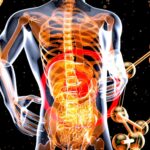Exposure to a synthetic chemical found widely in the environment is linked to non-viral hepatocellular carcinoma, the most common type of liver cancer, according to a new study conducted by researchers from the Keck School of Medicine of USC and published in JHEP Reports. The chemical, called perfluooctane sulfate or PFOS, is one of a class of man-made […]
Plant scientists find recipe for anti-cancer compound in herbs
Thyme and oregano possess an anti-cancer compound that suppresses tumor development, but adding more to your tomato sauce isn’t enough to gain significant benefit. The key to unlocking the power of these plants is in amplifying the amount of the compound created or synthesizing the compound for drug development. Researchers at Purdue University achieved the […]
Online pharmacy lab finds benzene in 78 sunscreen products
Valisure LLC, an online pharmacy company that also conducts independent testing of consumer products, has issued a petition to the FDA to enact stricter rules regarding the presence of benzene in sunscreen products. In an article published on their website, the company claims to have found evidence of benzene in 78 sunscreen and after-tanning care […]
Bowel cancer rising among young adults in Europe
The rate of bowel cancer — otherwise known as colorectal cancer or CRC — is rising among adults aged 20-49 in Europe, suggests research published online in the journal Gut today. Rates rose most steeply among the youngest age group (20-29 years), and the authors warn that if the trend continues, screening guidelines may need to be […]
How Vitamin C Prevents Cancer — But Apples Are Better
Writing in the medical journal, The Lancet , scientists from Cornell University and Seoul National University offer a more precise explanation for vitamin C’s anti-cancer activity. And they suggest that a natural chemical from apples works even better than vitamin C. Their report appears in the Jan. 12, 2002, issue of The Lancet , (Vol. […]
Dietary Ginger May Work Against Cancer Growth
The substance that gives ginger its flavor appears to inhibit the growth of human colorectal cancer cells, according to research at the University of Minnesota’s Hormel Institute in Austin, Minn. Working with mice that lack an immune system, research associate professor Ann Bode and her colleagues found slower rates of cancer growth in mice given […]
Maximizing The Anti-Cancer Power Of Broccoli
University of Illinois researcher Elizabeth Jeffery has learned how to maximize the cancer-fighting power of broccoli. It involves heating broccoli just enough to eliminate a sulfur-grabbing protein, but not enough to stop the plant from releasing an important cancer-fighting compound called sulforaphane. The discovery of this sulfur-grabbing protein in the Jeffery lab makes it possible […]
Animal Study Demonstrates How Triclosan Can Trigger Gut Inflammation
Scientists have identified bacteria and specific bacterial enzymes that trigger harmful effects of triclosan, an antimicrobial agent found in thousands of consumer products; moreover, the study suggests these enzymes can be blocked from driving intestinal damage. Triclosan is an antimicrobial ingredient present in more than 2,000 consumer and industrial products. It is a ubiquitous environmental contaminant […]
Good news for grilling: Black pepper helps limit cancerous compounds in meat
A Kansas State University researcher recently discovered that a commonly used spice is a champion at reducing carcinogenic compounds in grilled meats. J. Scott Smith, professor of animal sciences and industry, found that black pepper nearly eliminates the formation of heterocyclic amines, or HCAs, which can form on the surface of meat when it is […]
Higher Olive Oil Intake Reduces Risk of Total and Cause-Specific Mortality
Consuming more than 7 grams of olive oil per day is associated with lower risk of cardiovascular disease mortality, cancer mortality, neurodegenerative disease mortality and respiratory disease mortality, according to a study of over 92,000 U.S. adults. “Olive oil consumption has been shown to lower cardiovascular disease risk, but its associations with total and cause-specific […]









